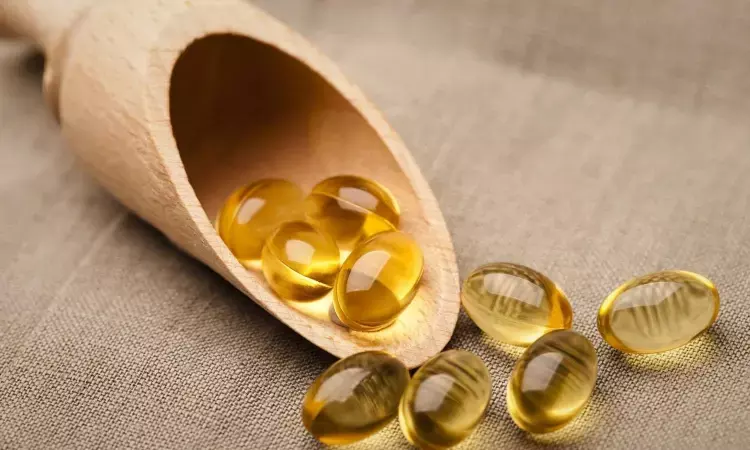- Home
- Medical news & Guidelines
- Anesthesiology
- Cardiology and CTVS
- Critical Care
- Dentistry
- Dermatology
- Diabetes and Endocrinology
- ENT
- Gastroenterology
- Medicine
- Nephrology
- Neurology
- Obstretics-Gynaecology
- Oncology
- Ophthalmology
- Orthopaedics
- Pediatrics-Neonatology
- Psychiatry
- Pulmonology
- Radiology
- Surgery
- Urology
- Laboratory Medicine
- Diet
- Nursing
- Paramedical
- Physiotherapy
- Health news
- Fact Check
- Bone Health Fact Check
- Brain Health Fact Check
- Cancer Related Fact Check
- Child Care Fact Check
- Dental and oral health fact check
- Diabetes and metabolic health fact check
- Diet and Nutrition Fact Check
- Eye and ENT Care Fact Check
- Fitness fact check
- Gut health fact check
- Heart health fact check
- Kidney health fact check
- Medical education fact check
- Men's health fact check
- Respiratory fact check
- Skin and hair care fact check
- Vaccine and Immunization fact check
- Women's health fact check
- AYUSH
- State News
- Andaman and Nicobar Islands
- Andhra Pradesh
- Arunachal Pradesh
- Assam
- Bihar
- Chandigarh
- Chattisgarh
- Dadra and Nagar Haveli
- Daman and Diu
- Delhi
- Goa
- Gujarat
- Haryana
- Himachal Pradesh
- Jammu & Kashmir
- Jharkhand
- Karnataka
- Kerala
- Ladakh
- Lakshadweep
- Madhya Pradesh
- Maharashtra
- Manipur
- Meghalaya
- Mizoram
- Nagaland
- Odisha
- Puducherry
- Punjab
- Rajasthan
- Sikkim
- Tamil Nadu
- Telangana
- Tripura
- Uttar Pradesh
- Uttrakhand
- West Bengal
- Medical Education
- Industry
Vitamin E supplementation may benefit patients with NAFLD

China: A recent study published in the Journal of Digestive Diseases has shed light on the role of vitamin E supplementation in the treatment of non-alcoholic fatty liver disease (NAFLD).
Evidence from an umbrella meta-analysis of randomized controlled trials (RCTs) revealed that the administration of vitamin E reduces aspartate aminotransferase (AST), alanine aminotransferase (ALT), fibrosis and steatosis levels in patients with NAFLD. Research showed a significant reduction in fibrosis scores when vitamin E dose exceeds 500 IU/day and treatment duration surpasses 20 months.
NAFLD is defined as the accumulation of excessive fat in the liver, as shown by imaging or by histology, in the setting of no significant alcohol consumption and the absence of any secondary cause. The condition is estimated to be the most common cause of end‐stage liver disease in the coming years.
Vitamin E is the major lipid-soluble chain-breaking antioxidant in the human body. Molecules of the vitamin E family exert anti-inflammatory and anti-atherogenic activities in addition to their anti-oxidative properties. Although NAFLD pathogenesis and its progression to fibrosis need clarification, it is suggested that oxidative stress plays a crucial role in producing the lethal hepatocyte injury linked with NALFD.
The impact of vitamin E supplementation on liver biomarkers in patients with NAFLD remains controversial. Therefore, Mingyue Wang, Nantong University, Nantong, China, and colleagues present a meta-analysis of RCTs to clarify the effects of vitamin E administration on AST, ALT, GGT, steatosis levels and fibrosis score in people with NAFLD diagnosis. The umbrella meta-analysis included a total of 6 meta-analyses.
The authors reported the following findings:
- By pooling ES based on the random-effects model, vitamin E supplementation significantly decreased ALT (ES = −6.47 U/L), AST (ES = −5.35 U/L), fibrosis score (ES = −0.24 U/L), and steatosis levels (ES = −0.66) but had no effect on GGT values in NAFLD patients.
- In the subgroup analyses, we detected that fibrosis scores notably decreased when vitamin E dosage was >500 IU/day (ES = −0.25) and when the treatment duration was >20 months (ES = −0.26).
"We discovered that supplementation with vitamin E significantly reduced aspartate aminotransferase, alanine aminotransferase, fibrosis score, and steatosis levels but had no effect on GGT values in patients with non-alcoholic fatty liver disease," the researchers wrote.
The researchers found a significant reduction in fibrosis scores when vitamin E dose exceeds 500 IU/day and treatment duration surpasses 20 months.
Reference:
Wang, M., Prabahar, K., Găman, A., & Zhang, J. Vitamin E supplementation in the treatment on non-alcoholic fatty liver disease (NAFLD): Evidence from an umbrella meta-analysis on randomized controlled trials. Journal of Digestive Diseases. https://doi.org/10.1111/1751-2980.13210
Dr Kamal Kant Kohli-MBBS, DTCD- a chest specialist with more than 30 years of practice and a flair for writing clinical articles, Dr Kamal Kant Kohli joined Medical Dialogues as a Chief Editor of Medical News. Besides writing articles, as an editor, he proofreads and verifies all the medical content published on Medical Dialogues including those coming from journals, studies,medical conferences,guidelines etc. Email: drkohli@medicaldialogues.in. Contact no. 011-43720751


